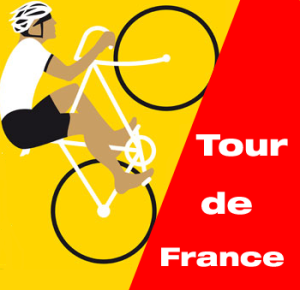
As the contenders in the legendary bicycle race around France have become more diversified, the lingua franca of the race has been changing over the years. Despite France’s well-known desire to keep the language “pure” and unsullied via the Académie française, English has become the most common language to hear at the race. Communiques from the organizers of the race are now issued in French and English, and the sheer volume of non-francophone riders has made the use of translators at staging point interviews unwieldy.
Most of the international racers have elected to learn English, rather than French, in a bid to reach greater audiences and supporters. Even racers who speak French fluently answer questions from reporters in English, “to save energy at the end of the day.” Anglophone cyclists have won the last three races, and 7 of the 15 stages in the race this year were won by native English speakers.
The race itself has grown large enough that it is covered by English-speaking media companies, a distinct change from the past, when it was covered by the French media, and then translated for fans in other countries. Last year, the first British winner of the Tour, Bradley Wiggins, opted to do all-English news conferences, bypassing the French press altogether. While French and English currently hold equal sway in the official race rules, it may be a matter of time before the quintessential French race sees an exclusively English lingua franca.
It is fascinating to consider the different ways in which language and culture come together to impact current events. What do you think the result of changing the main language of an event like the Tour de France would have on such events, their coverage in media, or their popularity in general? Let us know in the comments!






